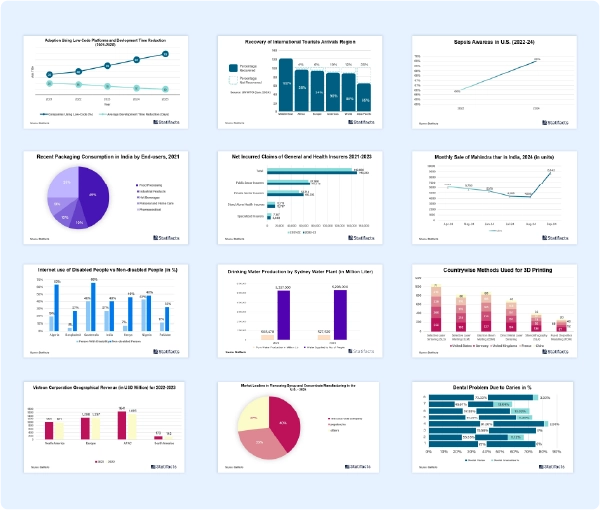The U.S. immunotherapy drugs market size is calculated at USD 87.03 billion in 2024 and is predicted to attain around USD 464.06 billion by 2034, expanding at a CAGR of 18.22% from 2025 to 2034.
U.S. Immunotherapy Drugs Market Report Highlights
- By drug type, the monoclonal antibodies segment dominated the market, accounting for the largest share in 2024.
- By drug type, the vaccines segment is projected to expand rapidly in the market in the coming years.
- By therapeutic area, the cancer segment led the market with the highest revenue share in 2024.
- By therapeutic area, the autoimmune & inflammatory diseases segment is predicted to witness significant growth in the market over the forecast period.
The U.S. immunotherapy drugs market is growing at a rapid pace and transforming as it is influenced by groundbreaking breakthroughs in biotechnology and the rising prevalence of chronic diseases globally. Immunotherapy, which has been developed based on the ability of the human body's immune system to combat diseases such as cancer, autoimmune disorders, and infections, is becoming the cornerstone of modern medical treatments. The key advantages of immunotherapy drugs, unlike traditional therapies, are more precision in targeting disease mechanisms with higher accuracy and minimal side effects for better outcomes in treatment. Important factors, including the need for effective treatments of cancer, improved targeted therapy approaches such as monoclonal antibodies, and rising healthcare expenditures across developed and emerging markets, fuel the market sales.
Increasingly, chronic diseases of cancer, autoimmune disorders, and infectious diseases are slowly becoming the major drivers for the immunotherapy drugs market. The increasing diagnosis of various diseases, which require long-term treatment, fuels the increasing demand for more effective and less invasive therapies like immunotherapy.
Advances in biotechnology, including monoclonal antibodies, checkpoint inhibitors, and other immunotherapy agents, are continually being developed and used to make treatment more effective and personalized. Not only do these advancements increase the overall efficacy of treatments, but they also reduce the side effects commonly seen with traditional therapies like chemotherapy, making them more attractive to both doctors and patients.
Ongoing development in the U.S. immunotherapy drugs market, especially regarding the development of monoclonal antibodies, checkpoint inhibitors, and other immunotherapy agents, allows for more efficient and personalized treatments. These also bring about overall improvement in treatments as well as fewer side effects, as seen in conventional therapies, such as chemotherapy, making them attractive to doctors and patients.
The high price of drugs used in the U.S. immunotherapy drugs market remains a major limitation to further market growth. The complexity and the heavy expense of resources required during the process of developing immunotherapy drugs only increase their prohibitively high price. Such high costs may make immunotherapy inaccessible to most people in the system, mainly in low- and middle-income countries. Such financial constraints are likely to reduce the access and uptake of immunotherapy in the market because regions are not extensively covered.
AI is an important transformative agent speeding up the growth of the U.S. immunotherapy drugs market by streamlining several key stages of drug development. AI platforms can swiftly assess the datasets that would range from clinical trials to patient records and from scientific literature in search of potential drug targets, as well as forecast patient responses. This makes it easier for pharmaceutical companies to come up with effective treatments, gradually accelerating drug discovery and saving money on clinical trials. Furthermore, there is artificial intelligence-enabled development of tailored therapies. Genetic and environmental factors and biomarkers are determined by assessing the differences in terms of their effectiveness in individual patients to further enhance their treatment outcomes and minimize any adverse effects. These innovations, driven by AI, facilitate the development of a more accurate and far-reaching delivery of immunotherapies, thus further driving the general growth of the market.
The emerging U.S. immunotherapy drugs market is focused on major growth prospects, especially in Asia-Pacific. An improving healthcare infrastructure, coupled with escalating investments in chronic disease management, drives the demand for immunotherapy solutions. Combination therapies wherein immunotherapy is combined with classic approaches, such as chemotherapy or radiation, are quickly gaining acceptance. These are believed to enhance the overall treatment efficacy and broaden the application of immunotherapy in diverse disease conditions.

